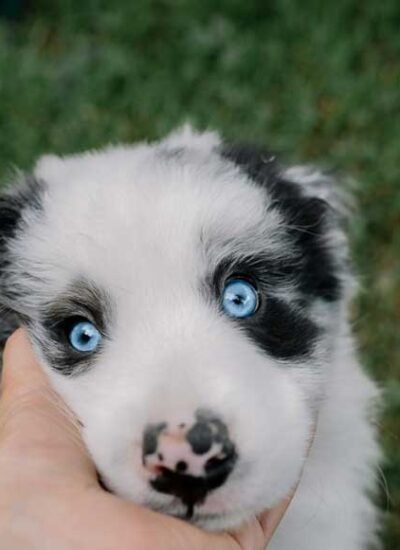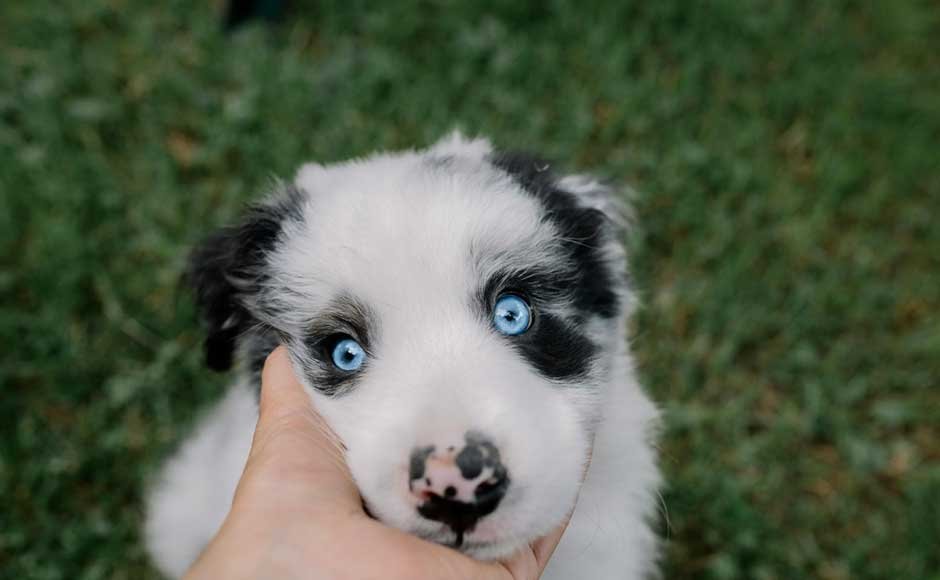Bringing home a brand-new puppy is kind of like bringing home a tiny, wiggly tornado—with a cute face and no clue about your carpet. They’re floppy, clumsy, full of love, and completely clueless about how things work. But with a little prep, a dash of patience, and some snacks (for you and the pup), you’ll be off to a great start.
This guide is for first-timers who are wondering, “Am I doing this right?” Whether you’re raising an energetic Rottweiler or a mixed-breed rescue, let’s walk through the must-knows without overcomplicating things.
1. Bringing Your Puppy Home
Before that furry bundle even waddles through the front door, you’ll want your house puppy-proofed like it’s hosting a toddler with teeth.
Stash cords, shoes, and anything chewable (which is… everything). Baby gates work wonders for blocking off areas you don’t want destroyed or peed in. Set up a sleeping area with a comfy bed or crate in a low-traffic spot. Make it cozy—blanket, plush toy, and maybe a soft ticking clock to mimic mom’s heartbeat.
If your puppy is coming from a pregnant dog still recovering or nursing others in the litter, ask the breeder or foster carer if there are any special steps to ease the transition.
When you first carry your pup across the threshold, keep it calm and easy. No loud hellos or a mob of new faces. Let them sniff around and soak it in. The first couple of days are usually a blur of naps, pees, and new smells. Keep everything simple, low-key, and consistent.
2. Feeding Your Puppy
Puppies eat like machines with bottomless tanks, but their bellies are still tiny and delicate. Stick to a puppy-specific food that matches their breed size and age—it’s packed with the fuel they need to grow strong and steady.
Three to four small meals a day is a good place to start. If they act like they haven’t eaten in years, that’s normal. Just don’t give in to begging—portion control matters, even if those eyes make you feel like a monster.
Clean water should always be available, and treats should be kept light—save the good stuff for training rewards. Think of treats as currency. You don’t hand out twenty-dollar bills for nothing, right?
3. Establishing a Routine
Puppies are tiny creatures of habit, and a solid routine will help them feel safe and secure—plus, it’ll save your floors from some… surprises.
Start with a potty schedule. Take them out first thing in the morning, after meals, naps, and play. Praise them like they just solved world peace when they go in the right spot. Accidents will happen—clean it up, take a breath, and move on.
Crate training is pure gold if done right. It gives your pup a den-like space that’s theirs and helps with house training. It also keeps them from redecorating your living room while you’re in the shower. For busy pet parents, combining crate training with services like mobile dog grooming ensures your pup stays clean, happy, and well-behaved—without disrupting your routine.
Sleep-wise? Expect lots of naps during the day and a few nighttime wake-ups at first. It’s a little like living with a furry newborn.
4. Socialization and Play
Here’s where the magic starts. Between 3 and 14 weeks of age, your pup’s brain is basically a sponge with legs. What they experience now shapes how they’ll handle life later—this is your golden window for socialization.
Introduce them to new sounds, textures, people, pets, and places—slowly and safely. Walk them past the mail truck, let them sniff the vacuum (from a distance), and reward them for calm, curious behavior. Don’t chuck them into overwhelming situations. Let them observe, process, and build confidence.
Playtime isn’t just about you and your dog having fun—it’s how puppies burn energy and learn boundaries. Choose safe toys—chewies, tug ropes, squeakers—and rotate them to keep things interesting. If they try to wrestle your fingers, redirect that bitey enthusiasm to a toy. Puppies don’t come with an off switch, but they do tire out eventually.
5. Health and Vet Care
Get your pup into the vet within the first week or so—sooner if anything seems off. This first visit sets the stage for a lifetime of good care.
You’ll get their vaccination schedule, which typically starts around 6–8 weeks old and continues in a series. Don’t skip this—it’s the best way to shield them from nasty stuff like parvo and distemper.
Then there’s flea, tick, and worm protection. These parasites are gross, persistent, and always ready to party unless you stay on top of prevention. Your vet can point you toward the right products and timing.
Keep an eye on their appetite, bathroom habits, and behavior. Puppies are pretty good at acting fine until something’s really wrong, so trust your gut. If something seems off, don’t wait.
6. Training Basics
Start simple. Sit. Stay. Come. Keep your voice upbeat and your rewards irresistible. Training a puppy is like teaching a toddler with fur and zero impulse control—you’ll repeat things a hundred times, but one day it’ll stick.
Use short sessions—five minutes is plenty. Praise them like they’ve won gold at the Olympics for doing anything right. Ignore the nonsense and reward the good. Positive reinforcement works far better than scolding or shouting.
Now, biting. All puppies bite. It’s how they explore the world. That doesn’t mean you have to be their chew toy. If they bite, say “ouch” and stop play. It teaches them biting makes the fun stop.
For barking, chewing, or zoomies at 3 a.m.—those usually boil down to boredom, lack of sleep, or too much energy. Tire them out, give them structure, and stay calm.
Conclusion
No one ever said that raising a puppy is all sunshine and belly rubs. Some days, it’ll feel like you’ve brought home a tiny land shark with a grudge against your socks and shoes. You’ll clean up messes, lose sleep, and question your life choices more than once.
But if you stick with it and keep showing up with patience and love, it all pays off. That wild little pup who cried on their first night home will grow into a loyal, loving, and well-behaved dog who knows they belong with you.
Keep it simple by doing these things:
- Stick to a routine
- Train in tiny, fun bursts
- Say yes to socialization
- Keep your cool
- Love them like crazy
You’ve got this. And that floppy-eared sidekick you just brought home? They’re going to think you’re the best thing since liver treats.






Leave a Reply